

With the appropriate care, your teeth that have had endodontic treatment will last as long as other natural teeth. Yet, a tooth that has received treatment may fail to heal or pain may continue to exist. Sometimes, the pain may occur months or years after treatment. If so, Endodontic Retreatment may be needed. Improper healing may be caused by:
In other case a new problem can jeopardise the tooth that was successfully treated. For example:
The endodontist will reopen your tooth to gain access to the root canal filling material. In many cases, complex restorative materials – crown, post and core material must be disassembled and removed in order to gain access. After removing the root filling, the endodontist can clean the canals and examine the inside of your tooth using magnification and illumination, Searching for any additional canals or unusual anatomy that requires treatment. Afterwards the canals are cleaned and sealed and a temporary filling is placed in the tooth. If the canals are unusually narrow or blocked your endodontist will suggest endodontic surgery to get rid of the infection. This involves a small incision to gain access to the root tip and allow it to be cleaned and sealed. Once your endodontic retreatment is completed, you need to return to your dentist as soon as possible to have the tooth fully restored.
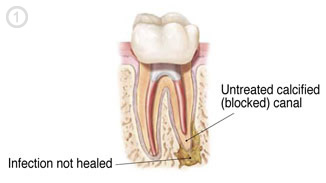
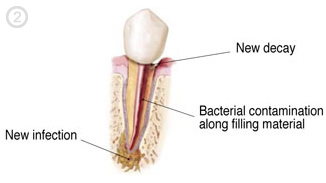
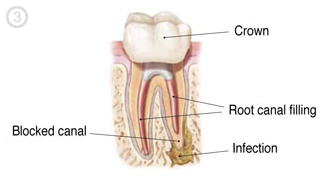
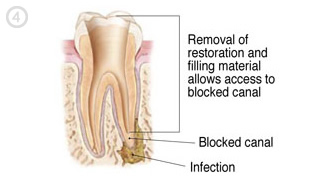
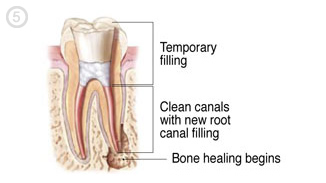
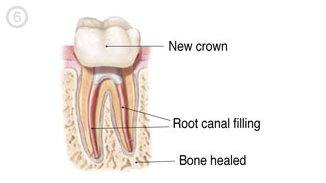

Your dentist has referred you to an endodontist because he or she understands that you will benefit from the specialized training and experience that a root canal specialist can offer.read more

Myth #1 - Root canal treatment is painful.
False. A root canal does not cause pain. In fact, root canals are performed to relieve pain caused by inflammation of the pulp chamber (where the nerve is located) or a dental infection.read more

We are offering the latest in dental technology as well as the most advanced techniques to ensure the highest possible success of your root canal treatment.read more

Whether you need to request an appointment or ask questions, we are here to help. Contact us online or by phone. Do not use this form for urgent medical matters.read more